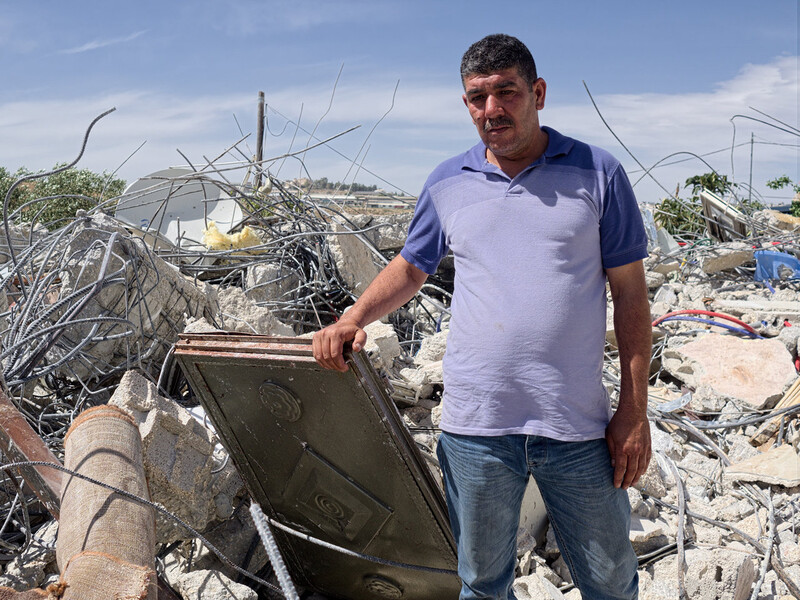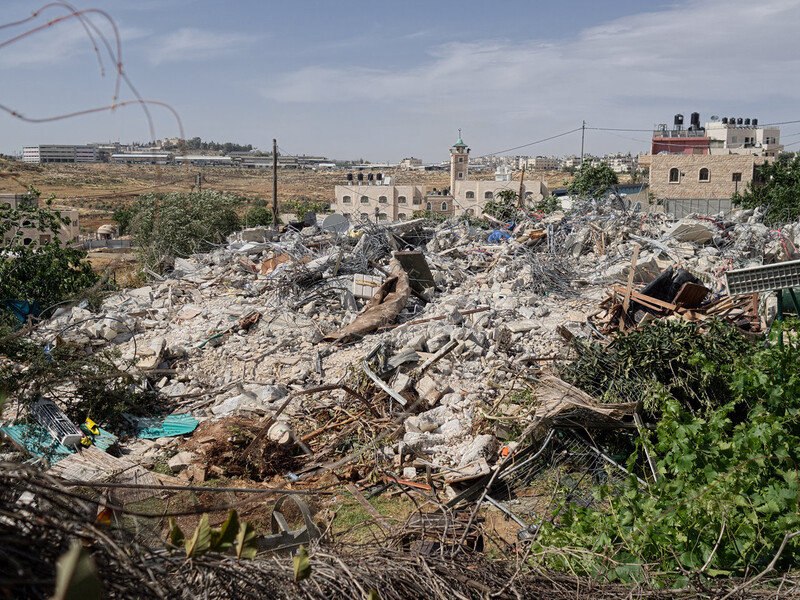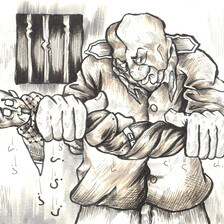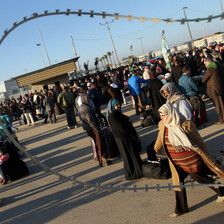The Electronic Intifada Beit Hanina 31 May 2013

The Jerusalem municipality is billing Badwan al-Salaymeh for the destruction of his home.
On a massive pile of rubble that used to be a two-story home, Badwan al-Salaymeh’s cat paced back and forth searching for her two missing kittens.
“The human rights organizations will probably care more about the pets — even animals have more rights than us Palestinians,” al-Salaymeh said as he climbed the mound of concrete and metal.
The front yard gives the impression of a miniature war zone: the collapsed home in the center, the metal fence dented and bent, the garden uprooted, the trees flattened under the bulldozers.
Early in the morning on Wednesday (29 May), approximately 100 Israeli police officers arrived at his home in the Beit Hanina area of Jerusalem, accompanied by two bulldozers. According to witnesses, two minors were arrested for throwing stones, one of whom was said to be around 12 years old. Another was injured after inhaling tear gas.
The al-Salaymeh family had stayed in the nearby West Bank village of al-Ram the night before, where they were celebrating a wedding. When officers swarmed the neighborhood and began the assault, one woman and two children were in the home.
Police “laughing at us”
“Everybody was crying, and some of [the police] were laughing at us,” said 40-year-old Osama, Badwan’s son-in-law, who arrived during the middle of the demolition. “They had gas and sound bombs.”
The building was home to four family apartments, and its demolition means the displacement of 13 persons.
Marwan al-Salaymeh, one of Badwan’s brothers, arrived during the middle of the demolition after receiving a frantic phone call from a neighbor: “I asked where they expected us to go. The captain told me to go to Jordan. ‘You have nothing here,’ he said — even though my father and grandfathers were Palestinians.”
Badwan al-Salaymeh built his home in 2000. In 2011, he received notice from the Israeli-controlled Jerusalem municipality that his home lacked the required building permits and Israel therefore considered it illegal.
After several unsuccessful attempts to obtain the necessary building permits, which are rarely granted to Palestinians, especially in Jerusalem, al-Salaymeh began to pay fines totaling 200,000 shekels ($54,000 dollars). He told The Electronic Intifada that he had been making monthly payments of $600 for the previous two years.
“Court is your enemy”

The destroyed home was a gathering place for the extended family.
“We do everything to make our homes legal,” al-Salaymeh noted as he rummaged through what’s left of the home. Furniture, prayer mats, toys, photographs and a mangled satellite dish could be seen in the ruins.
“When your court is your enemy, you can’t do anything,” he said. Adding insult to injury, the municipality has also informed him that he will have to pay the bill for the demolition.
Before the demolition, Badwan’s two brothers and four sisters gathered at his home each month for a party. When the weather was mild, they sat in the garden, surrounded by the grape vines and apricot trees that are no longer standing.
His 24-year-old nephew, who lived in a flat on the first floor, was preparing to get married. Because police officers prevented them from getting their belongings out the house, gifts, gold, money, plans, receipts and passports were all buried beneath the wreckage, according to Badwan.
“We loved meeting here because the house is nice,” Marwan said and paused. “Well, it was nice,” he corrected himself.
Because the demolition began in the early morning, it got underway at the same time students were walking to the nearby elementary school. Approximately 100 children stopped and gathered to witness the scene, a neighbor said.
Israel “wants to destroy everything”
The following day, a group of approximately 15 neighbors and friends visited the al-Salaymeh family as a show of support. They sat on plastic chairs under an open tent erected in the only free corner of the yard and drank coffee as they assessed where to start rebuilding.
“Why did they do this to my uncle’s house?” Marwan’s 10-year-old son asked him as he surveyed the scene.
Marwan turned, switching back to English: “What can I tell him? He was playing with his cousins here in the garden just weeks ago. He will be a young man in ten years. I don’t know how this will affect him, what he’ll want to do.”
His other brother, Muhammad, shook his head and said, “Israel wants to destroy everything that calls itself Palestinian.”
According to the Jerusalemites Campaign, Wednesday’s demolition was the ninth to take place in Jerusalem over the last two weeks. At least 450 additional homes have been delivered demolition orders from the municipality and are awaiting destruction (“IOF demolishes Jerusalem building, displaces 13,” 29 May 2013).
The Jerusalemites Campaign also notes that “US Secretary of State John Kerry was in the region last week, yet his visit went without comment on the demolitions despite being in Jerusalem a mere 48 hours before seven homes had been bulldozed.”
In 2011, the UN Office for the Coordination of Humanitarian Affairs (OCHA) stated that one-third of occupied East Jerusalem is set aside for Israeli settlements. Only 13 percent is available for Palestinian construction; city planning ignores Palestinians’ “basic housing and development needs” and “entire neighborhoods … are unplanned, underserviced and face the threat of wide-scale demolitions,” an OCHA report stated (“East Jerusalem: Key Humanitarian Concerns” [PDF]).
Israel’s complex bureaucratic permit regime and constant expansion of settlements are used to pressure Palestinians in East Jerusalem to move elsewhere in the West Bank or beyond. Palestinians in Jerusalem regularly have their residency revoked for arbitrary reasons.
Nonetheless, Badwan al-Salaymeh promised to rebuild his home. “He’s not going anywhere,” his son-in-law Osama said. “Staying here on his land is his idea of resistance, it’s his intifada.”
Patrick O. Strickland is a freelance journalist whose writing has appeared in Al Jazeera English, Al Akhbar English, The Electronic Intifada, Middle East Monitor, Palestine Monitor, and others. Follow him on Twitter @p_strickland_.





